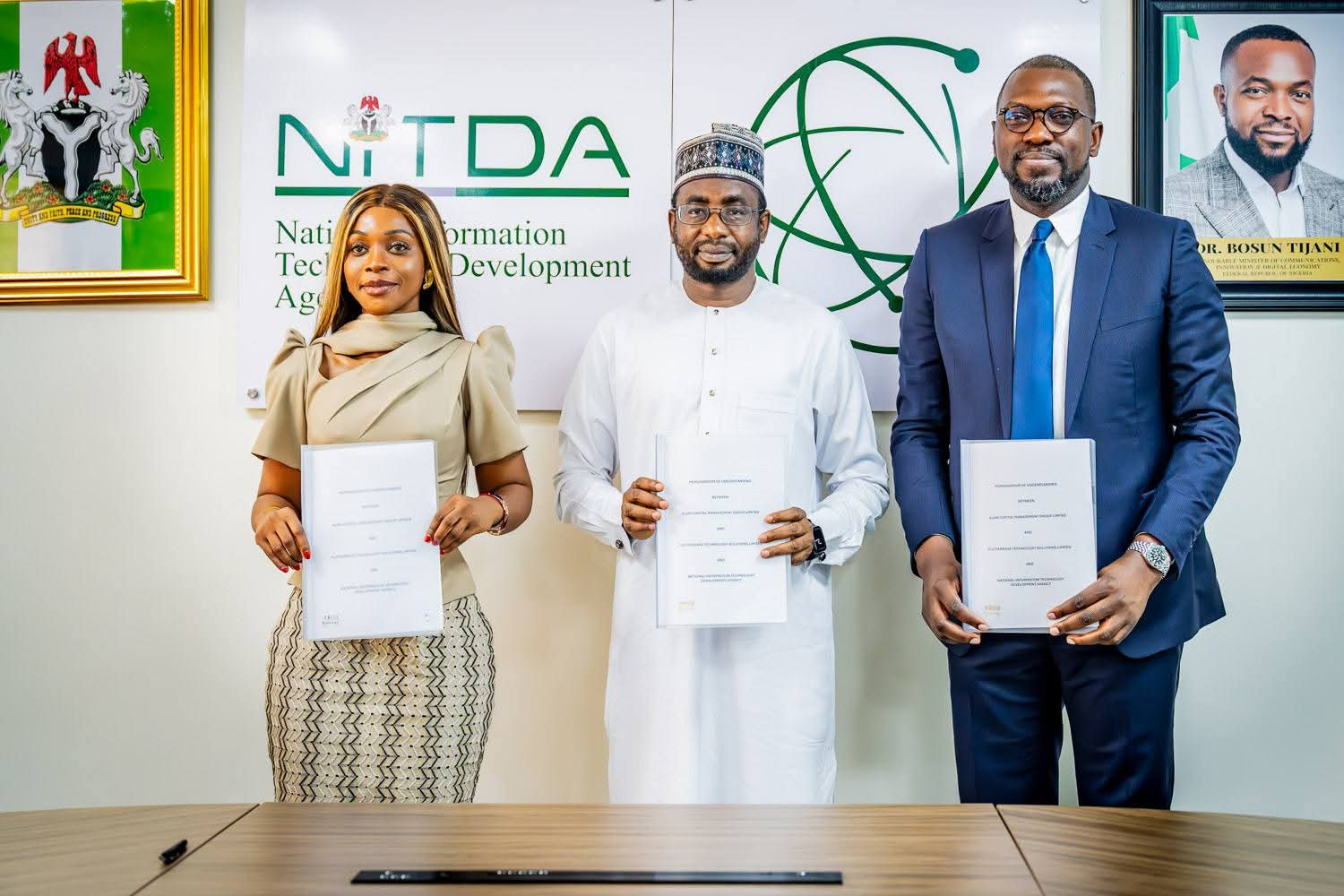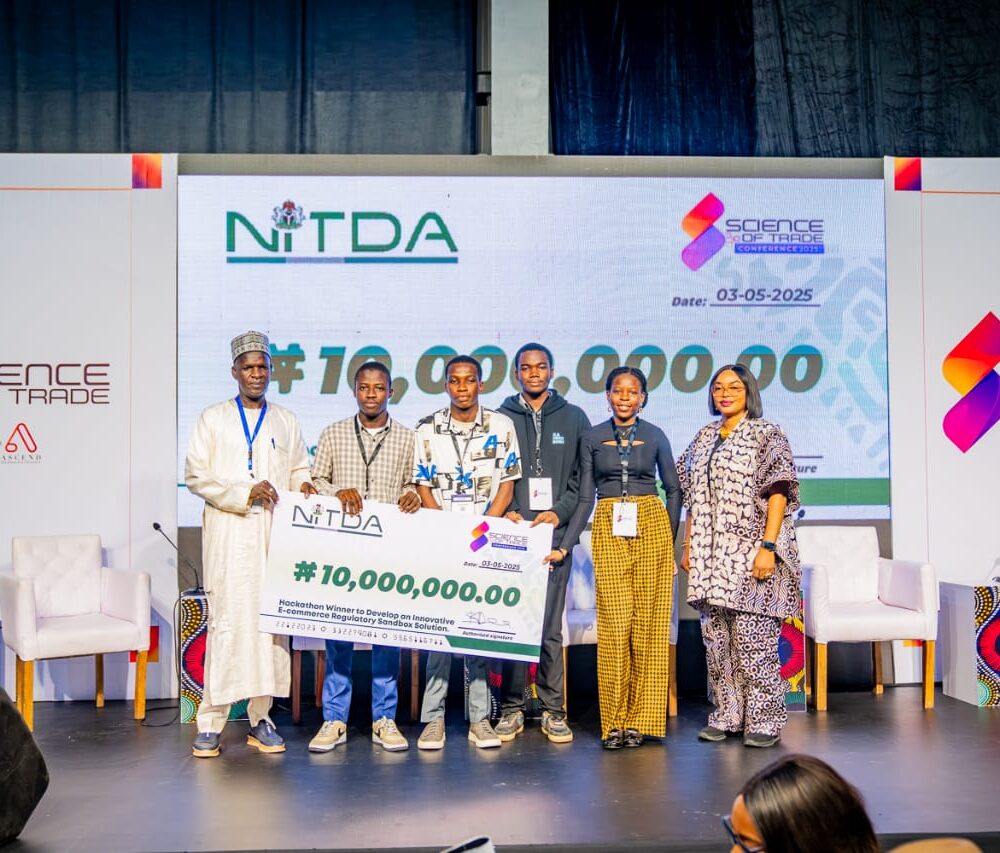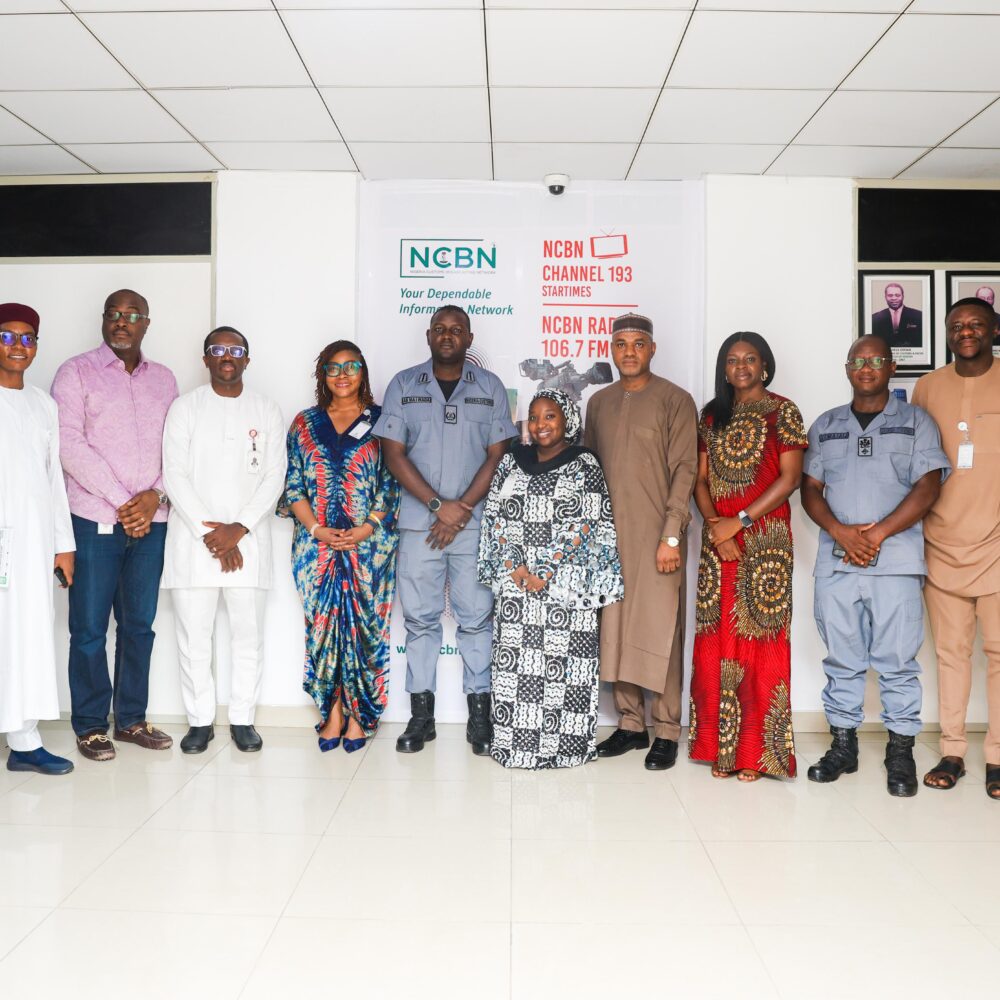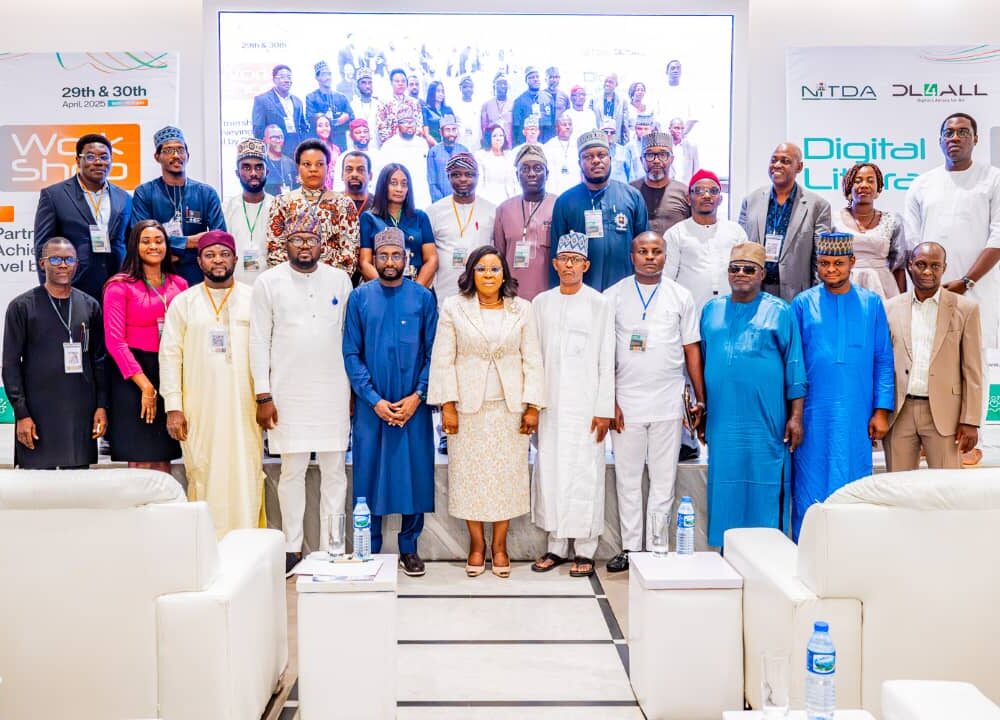The National Information Technology Development Agency (NITDA) has signed a Memorandum of Understanding (MoU) with Flutterwave, Africa’s leading payment technology company, and Alami, a private enterprise focused on empowering young entrepreneurs and SMEs in technology and creative industries.
The strategic partnership aimed to accelerate Nigeria’s digital transformation by fostering fintech innovation, promoting digital literacy, and strengthening digital infrastructure to support small and medium-sized enterprises (SMEs).

The MoU was signed following a meeting between NITDA’s Director General, Kashifu Inuwa Abdullahi, Flutterwave’s CEO, Olugbenga Agboola, and Alami’s CEO, Ms. Olu White. The agreement aligned with NITDA’s commitment to implementing the National Digital Economy Policy and Strategy (NDEPS) and equipping businesses with the necessary tools to thrive in a digital era.
Speaking on the partnership, Kashifu Inuwa emphasized the importance of public-private collaboration in achieving Nigeria’s digital economy aspirations. He noted that slow digital adoption among SMEs has been a major obstacle to economic growth, and through this collaboration, businesses will be provided with the resources and infrastructure needed to transition into the digital age.
Flutterwave’s Founder and CEO, Olugbenga Agboola, expressed confidence in the initiative’s potential to empower SMEs. He stated that many small businesses in Nigeria struggle to fully embrace digital solutions, and by providing seamless and secure payment technologies, they can scale with confidence. He added that the collaboration with NITDA reinforced Flutterwave’s dedication to fostering a truly inclusive digital economy.
The partnership will focus on enhancing digital payment infrastructure, technology financing, hosting the Digital Nigeria Week 2025, supporting NITDA’s core initiatives such as the Strategic Roadmap and Action Plan (SRAP 2.0), innovation and entrepreneurship programs, digital literacy, and cybersecurity.





